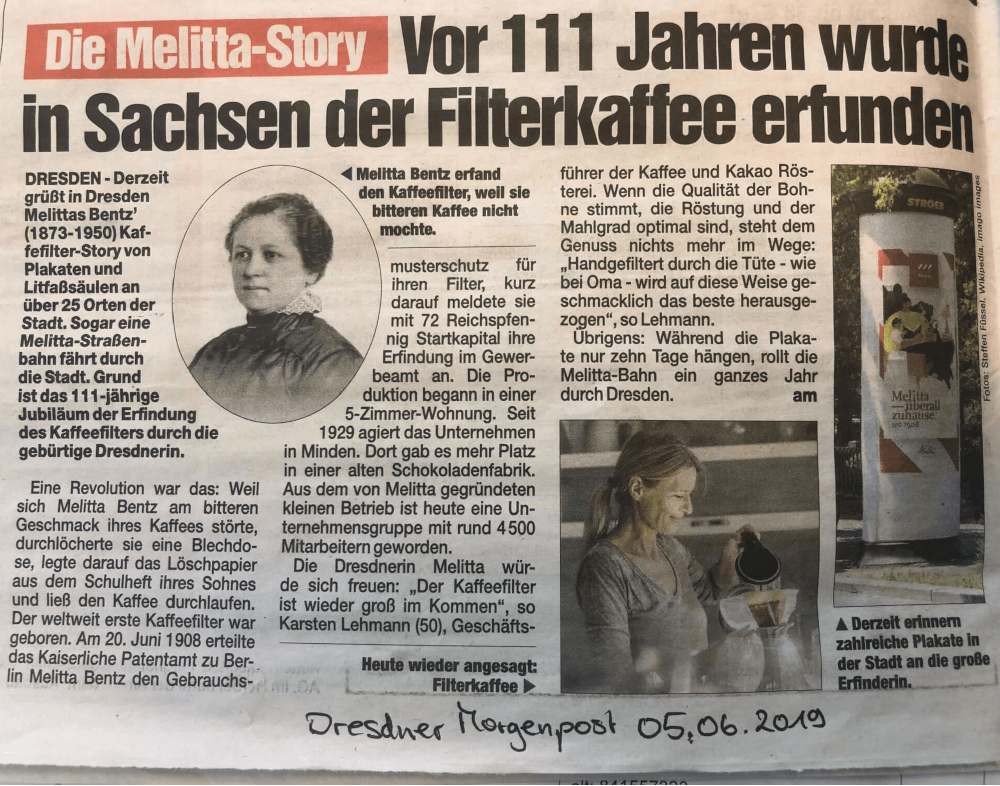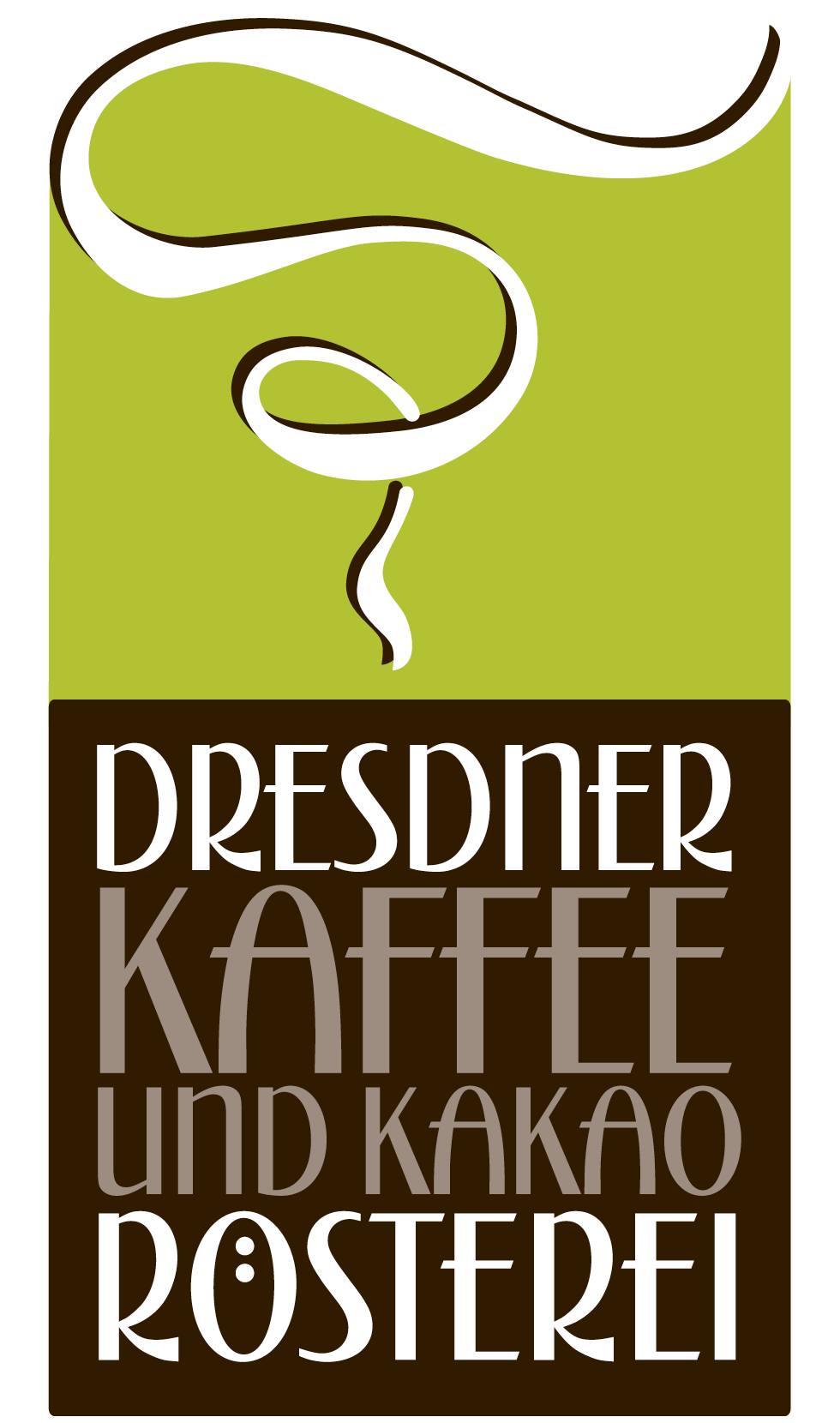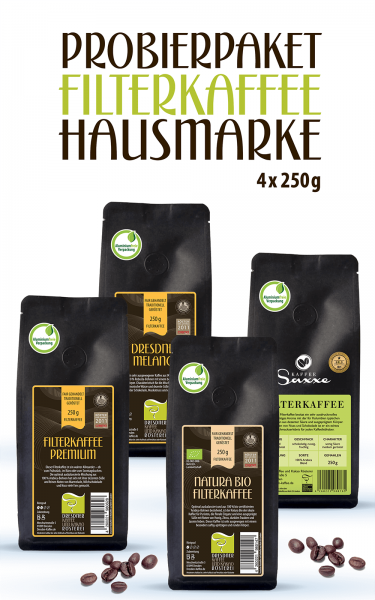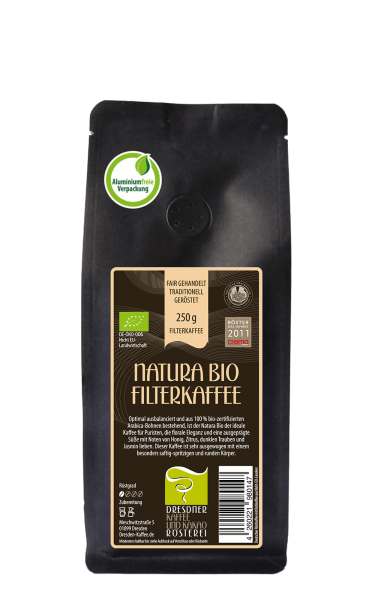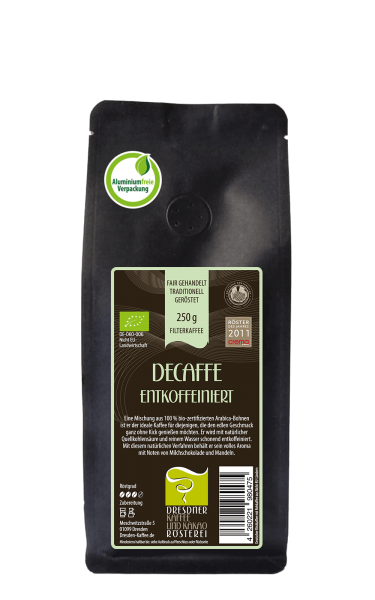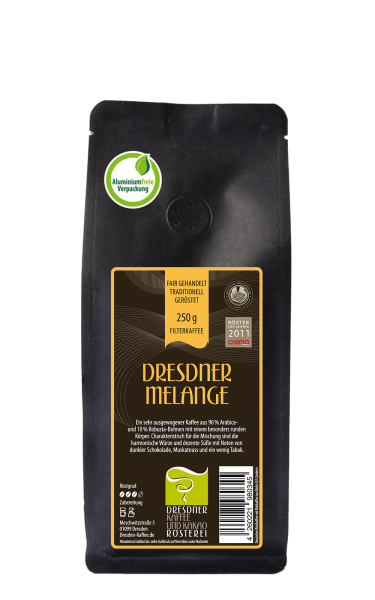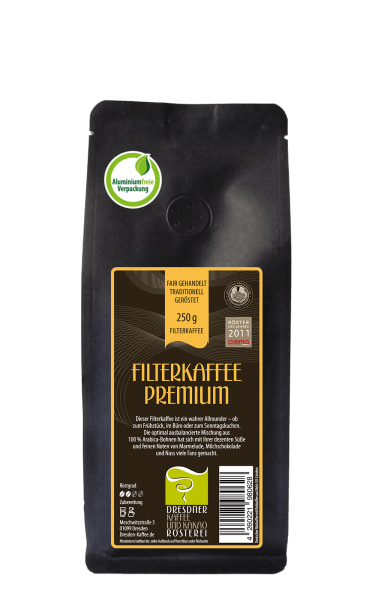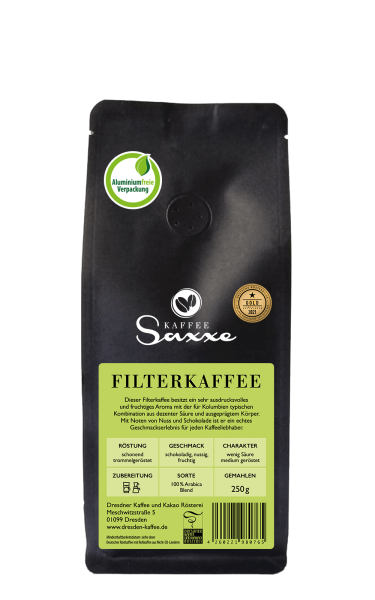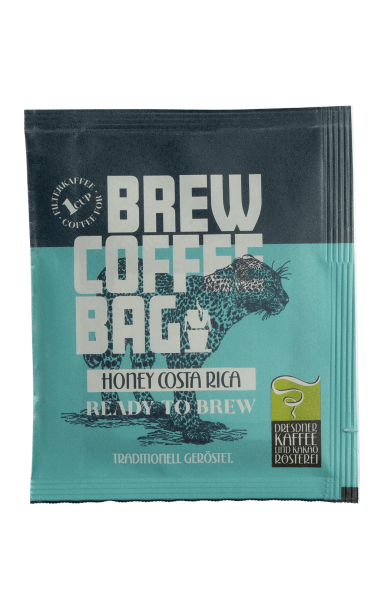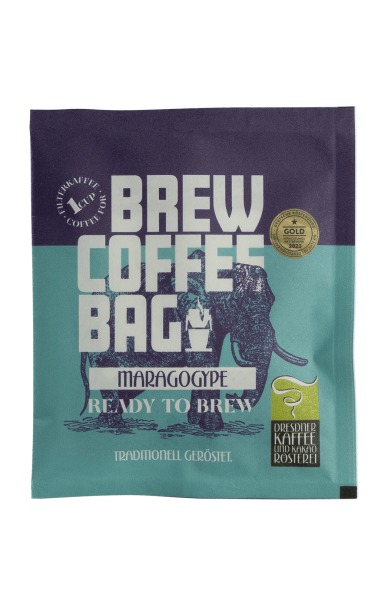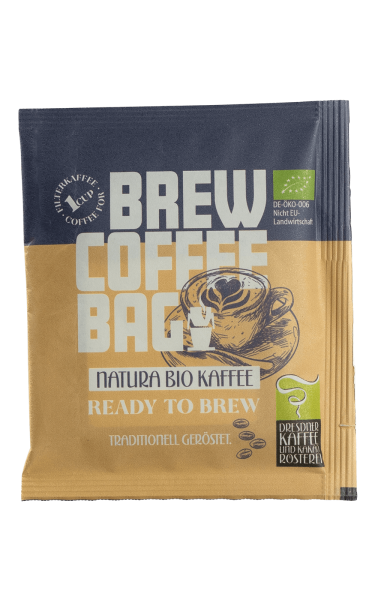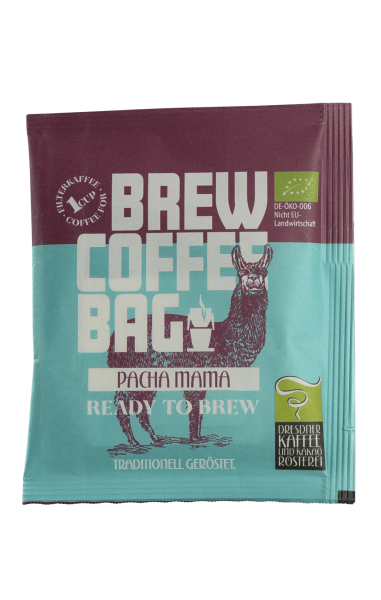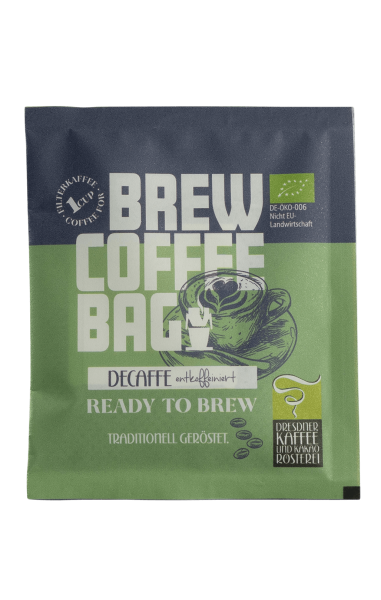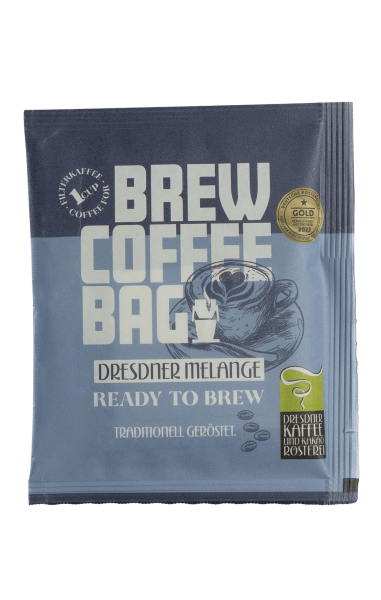Filter coffee by hand
In addition to the hand filter, there are of course a number of other methods of preparing coffee by hand.
These include the AeroPress, the Chemex and the Karlsbad pot. The latter is also called the Bayreuth coffee maker, because the Bayreuth porcelain factory Walküre took up the traditional shape of the Karlsbad pot and redesigned it under the name Bayreuth coffee maker by Daniel Eltner.
The secret ...
... of the proven Karlsbad brewing principle lies in the filterless preparation. The through-glazed porcelain double filter replaces a paper or metal filter and dissolves fats, oils and acids without foreign taste influences.
The city of Karlovy Vary is famous for its porcelain industry - so it's no wonder that the Karlovy Vary pot is made of pure hard porcelain.
Speaking of foreign taste influences
If you use a paper filter, you should first rinse it with hot water so that it loses its paper taste.
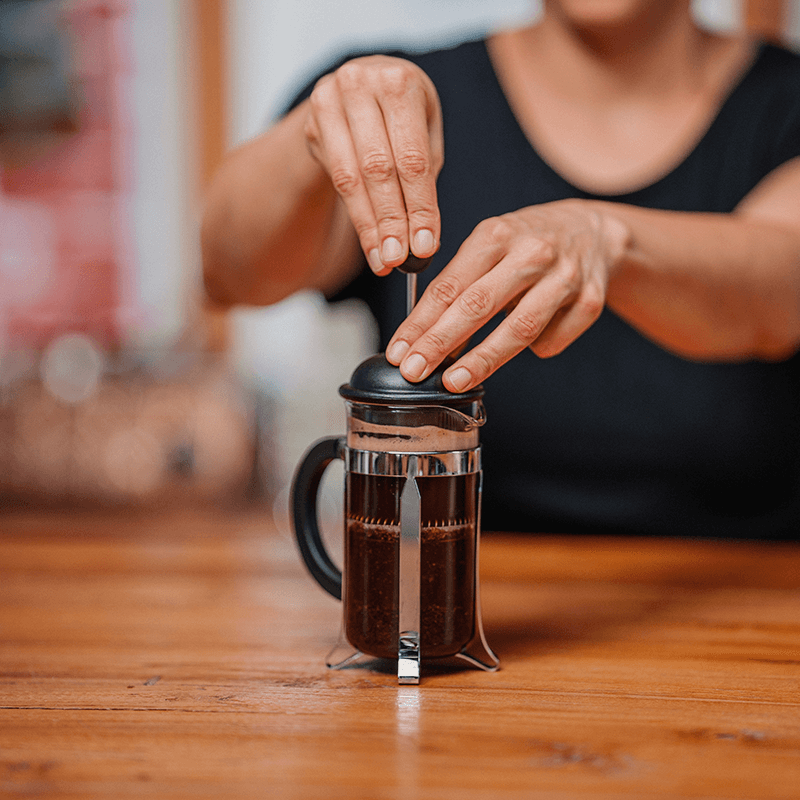
Perfect filter coffee - with a few tips
How much coffee per liter?
The rule of thumb is 60 grams of ground coffee per liter. However, it's better to use more than too little grounds. If too little coffee meets too much water, all the aromas will be washed out.
The ideal water temperature ...
... is 92 to 96 °C for most forms of preparation. If the water is too hot, the coffee tastes bitter to acrid.
If it is colder than 85 °C, the coffee tastes watery to sour.
Three more tips!
First, let the water sit for about a minute after boiling before pouring it over the coffee powder.
Second: If the hardness of the tap water is above six degrees, you should filter the water. You can find out the hardness level from your water supplier.
Third: The quality of the filter coffee is crucial, especially for this type of preparation! So choose one of our delicious filter coffees.
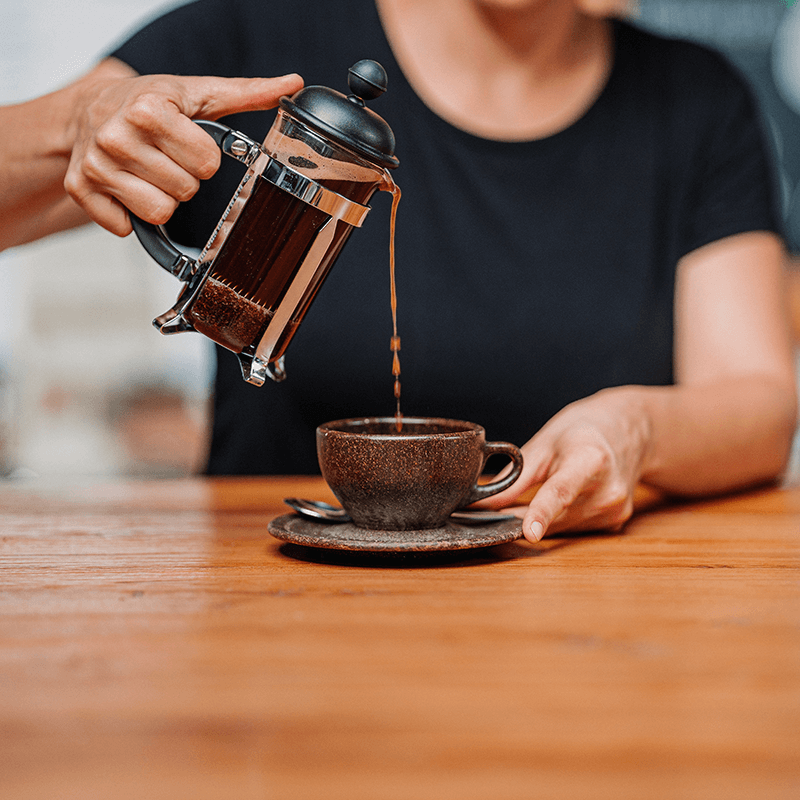
How does filter coffee work?
Filter coffee is one of the oldest and one of the simplest ways to prepare coffee. In principle hot water is poured onto ground coffee - preferably freshly ground - which causes the the desired aromas and flavors from the coffee grounds, but also to release but also releases components such as caffeine. So that one does not have the whole coffee grounds in the cup afterwards (as with the Turkish mocha), this is filtered out by a filter. In addition, some things are also filtered out that could theoretically remain, but make up the special taste of filter coffee, namely coffee oils and fats. In a French press, for example, they remain, but the paper filter eliminates them and thus ensures a particularly "clean" taste of the filter coffee.
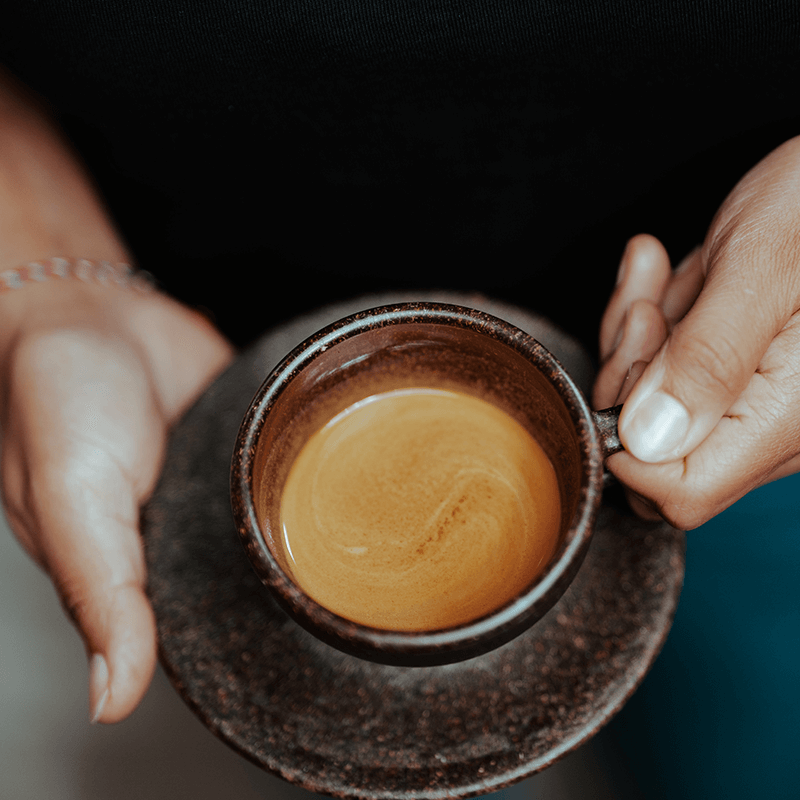
Filter coffee - in the beginning there was blotting paper
Melitta Bentz, a 35-year-old housewife from Dresden, made her very first coffee filter from the blotting paper in her children's exercise books. She placed this paper in a tin in which she had previously nailed holes. In 1908, she patented her filter idea.
The basic principle of the filter bag has never changed, even if the paper quality is different today. According to the definition, filter paper is a "wood-free, unsized absorbent paper made from rags, characterized by special purity and whose separating capacity and filtration speed are defined."
Meanwhile, there are also various coffee filters made of reusable materials: stainless steel coffee filters do not need an additional paper filter. Cotton filters are also practical, especially when traveling. Here you have the filter holder and the filter in one and thus save paper waste. But metal filters are also reusable and recyclable and therefore a good alternative to plastic filters.
Speaking of Melitta Bentz, there is a street in Dresden named after the Dresden native. And as luck would have it, Melitta Bentz Street is just a two-minute walk from our coffee roastery.
